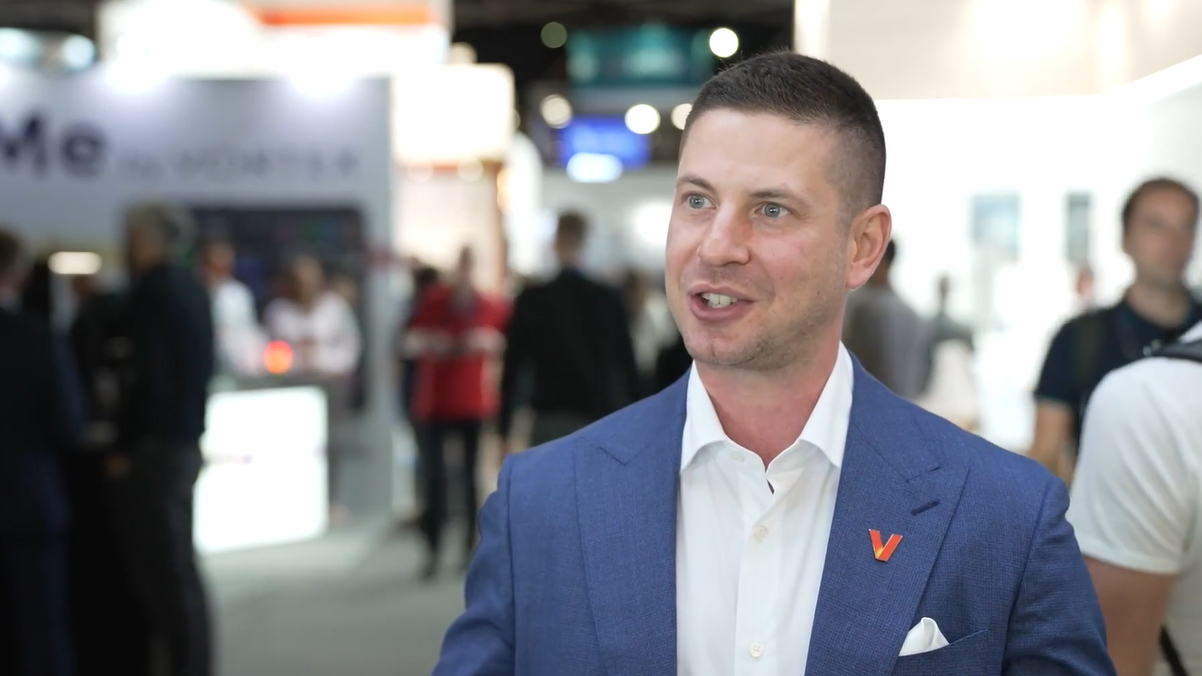Becoming Led Zeppelin is the highest earning documentary of 2025 and IMAX’s highest-ever earning docu release. This is due at least in part to the efforts made to faithfully recreate the experience of first hearing the band.
In yesterday’s IBC Conference session 'How Becoming Led Zeppelin was Created' Director Bernard MacMahon and Sound Supervisor Nicholas Bergh presented a behind-the-scenes glimpse of the techniques that made it possible.
They used a vast archive of 35mm, 16mm, 8mm, 2in video, tape, disc and stills that was transferred and painstakingly restored – without using AI or any digital processing.
“The moment you put anything through machines the machines are altering every single piece of that film, and the audience can tell it's been messed with,” MacMahon said. “What we believe is if there are scratches on that film, it's very laborious, but you go to the next frame or the previous frame and take just those pieces of grain and drop them over the scratch.”
Nonetheless the footage from 1944 when founder and guitarist Jimmy Page was born has the same high quality as Led Zeppelin’s final concert at the Royal Albert Hall in London in 1970. “Ninety-nine percent of what you're seeing on screen is exactly what was originally shot without anything done to it.”
For the same reasons of authenticity, the filmmakers went through a similar but more complicated process with the film’s soundtrack.
“We have amazing digital technology but if it's overused it can remove the audience's engagement with what they're seeing. If you EQ stuff or colour it or tinker with it too much, eventually the viewer subconsciously feels disengagement because they're not seeing the original thing,” said MacMahon.
MacMahon and Bergh are passionate about preserving original audio and visual recording, telling the IBC audience they want to encourage the industry to make advances in transferring old sound just as there has been huge progress in restoring picture.
“There is no modern equipment available to play back older sound correctly,” says MacMahon. “When you go to a cinema that's playing an original nitrate print of the 1930s the sound is amazing, but nothing exists to transfer that sound off the film and put it on a Blu-ray.”
Bergh aims to change that. He is building amplifiers and other machines using original parts so cinema audiences can hear all the frequencies of an original recording.
Despite the band granting full access to the original master tapes the filmmakers made the unusual choice to base the audio reproduction for the doc on the first cut of the vinyl recordings.
“It helped to evoke the sound of that era,” MacMahon explained. “When you made an album in 1968-69 the record was finished on a quarter inch tape, and a cutting artist would do a huge amount of work goosing the audio so that it pops when played back. That was sound that got people so excited when they heard it on the radio.”
They selected the best work from dozens of original vinyl copies. This includes a one of its kind lacquer disc that lead singer Robert Plant gave the filmmakers of a record he made with drummer Jon Bonham they made just before founding Zeppelin.
“What you're hearing in the film is what you would have heard on the day the record came out, only we’re playing it on the best turntable on planet earth and with a bigger HiFi [IMAX theatres] than you would have ever had access to in 1969.”
Berg suggested that we have all been listening to sound in the worst quality since the 1920s given the digitisation of sound and media from CDs to streaming.
The birth of the band coincided with the explosion of stereo recording and the film’s audio makes the most of this.
“By late 1968 when Zeppelin were making their first record, stereo had become much more sophisticated. We mixed in mono but spread across 5.1 so at the moment Zeppelin appear in the film, you hear the stereo recording explode. You can hear the drum kit, the symbols and then the guitars flying here and there.
“We’re trying to give the viewer an experience of time travel, so you're back in that moment hearing what you would have heard if you were in the engineer's room when they were cutting it at Atlantic Records in ‘69. You're hearing that exact sound.”

Major League Volleyball partners with LTN
Major League Volleyball (MLV) is partnering with LTN to support live video production and distribution for what it describes as its most expansive broadcast schedule to date in 2026.

Operative unveils AOS Services Platform
Operative has unveiled its new AOS Services Platform, a foundational, services-based architecture designed to help media companies monetise across linear, streaming, and emerging platforms.

Friend MTS partners with JAS TV
Anti-piracy and video cybersecurity specialist Friend MTS has announced a partnership with Jasmine International (JAS TV) to safeguard premium live sports across Thailand, Laos and Cambodia.

Zixi appoints new head of sales
IP-based video transport and orchestration specialist Zixi has announced the appointment of Heather Mellish as Vice President, Global Sales.

NBA makes strategic investment in Evergent Technologies
The National Basketball Association (NBA) has made a strategic investment in Evergent Technologies, coinciding with a multi-year extension of the companies’ partnership.




